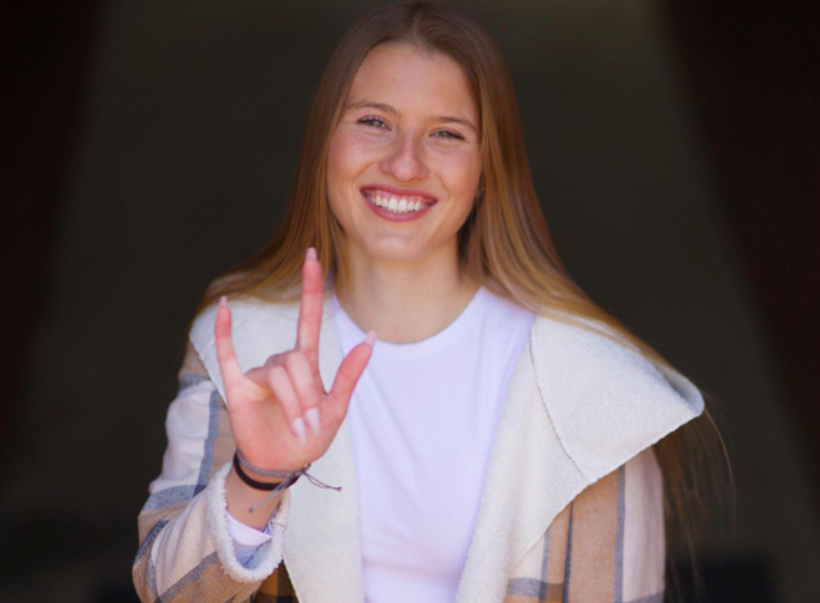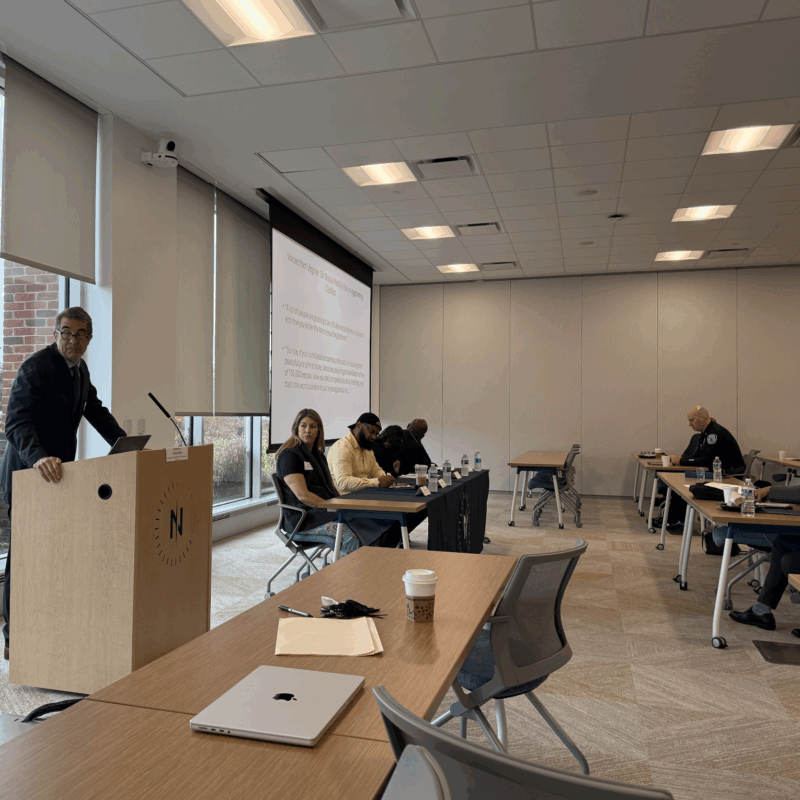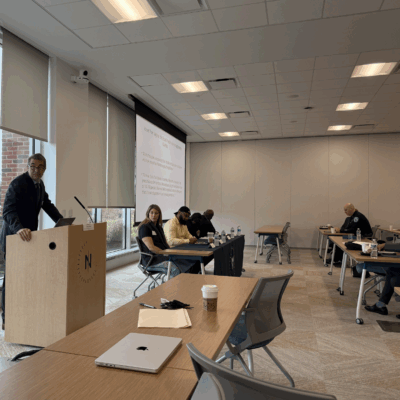It seems that student-athletes have always been placed in a separate sphere from the rest of the UVA community. To non-student-athletes, they are the basketball players, the football players, the NCAA champions—defined by their wins and losses. A project brought to the University of Virginia by three members of the women’s soccer team—Rebecca Jarrett, Lacey McCormack, and Laughlin Ryan—hopes to change that and shape a new narrative for student-athletes.
Founded last year, UNCUT at UVA is a storytelling platform that seeks to highlight the humanity of student-athletes—beyond their jerseys and competition statistics.
“When you’re an athlete, you’re solely known for your sport, and people identify you from your sport, and you even put pressure on yourself based on your sport,” says Philip Horton, marketing and outreach coordinator for UNCUT at UVA and a men’s soccer player. “It’s a chance for athletes to share their stories and talk about their journeys, whatever they might be.” UNCUT currently has six stories on its website surrounding mental health, identity, and injury.
The project isn’t the only one of its kind. Duke University and the University of North Carolina at Chapel Hill already have their own versions of UNCUT, and the community continues to grow.
The process for a story from start to finish takes time—it involves initially reaching out to athletes who may be interested in sharing their stories, conducting a short interview, and then engaging in an extensive writing and editing process.
In January, Anna Sumpter—who, before entering UVA, had already had five orthopedic surgeries—detailed her substantial injuries in UNCUT’s first story. A former member of the women’s soccer team, she had a career-ending injury a year ago that led to her fourth ACL tear, resulting in a total of seven orthopedic surgeries before she turned 23.
“Especially in college sports, it’s very easy to get consumed by your identity as an athlete above all else,” says Sumpter. “So transitioning into being a normal participant in society and finding a job and getting out of college…it was really, really difficult. But there was also so much appreciation that I had for my time as an athlete.”
Sumpter’s injury history led to her becoming a clinical research coordinator in the department of orthopedic surgery at UVA, with plans to go to medical school. Her story is an example of “finding light out of really difficult things that athletes face and turning it into something really good,” which she says is what UNCUT is all about.
Multiple stories center around mental health, with several student-athletes discussing their journeys. The topic has become especially important with the recent uptick in suicides among college athletes—at least five NCAA athletes died by suicide this year.
Emma Bradish, a member of the women’s rowing team, shared her experience with anxiety, something she says is not discussed enough. Student-athletes, she says, are often expected to always be “at the top of our game,” but she wants athletes to know they are not alone in wanting to ask for help—and that it’s okay to do so.
“When we fall to physical injuries, every resource that the athletic program at any university has, is thrown at helping that individual feel better,” says Bradish. “Asking for help or needing to talk to someone because your mental health isn’t where it should be…shouldn’t be thought of as any different than when you need to go in and see an athletic trainer.”
Alexander Cruz, a men’s wrestler, opened up about his struggles with his sexuality and how it has affected his wrestling career. He wants people to know that sexuality doesn’t have anything to do with the sport a person plays, and he hopes that his story can inspire other people and help them find a sense of connection.
“Growing up for me, I didn’t really have a role model to look up to who was a queer athlete, so I kind of went through my life and experiences just kind of on my own, and it was really hard,” says Cruz. “There’s not a lot of people who are out who are athletes, especially in wrestling, so I wanted to share my story…I would hate for somebody to feel like they had to hide a part of themselves to fit into society.”
The UNCUT team of 14 hopes to release a new story every other week. Over the summer, however, they’ll take a break, but a couple of stories will be released once the semester begins in the fall.
“I hope that the athletes that write these stories can be relieved by sharing them, and I hope that other athletes can see that the ones that do write them are pretty brave, and that there’s value to it, and that people aren’t by themselves,” says Horton. “Athletes are bigger than the sport they play.”






